How to Beat Procrastination: Take Action Today
Estimated Reading Time: ~6 minutes
- Name
- Tison Brokenshire
Updated on
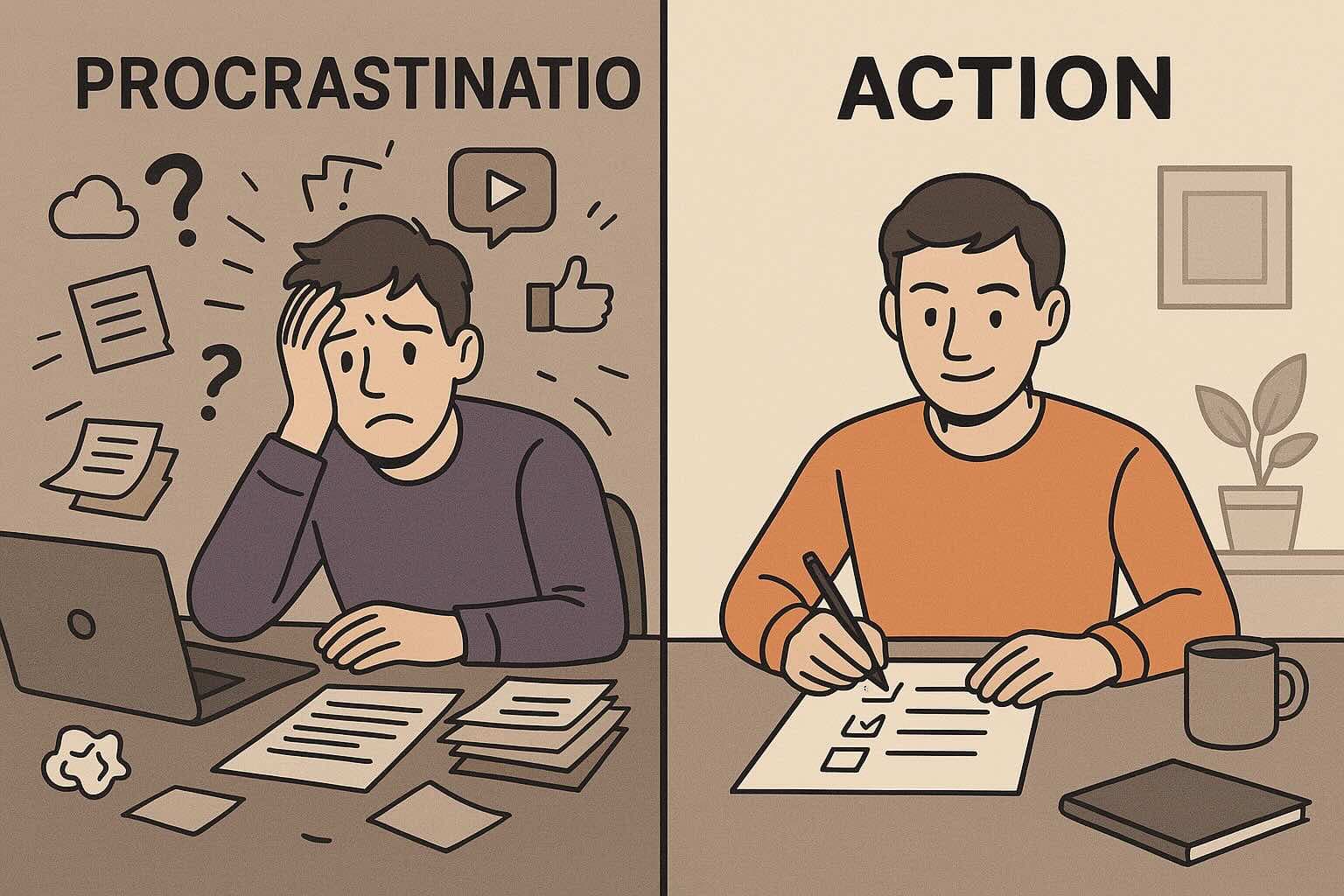
Procrastination is a universal struggle. Whether it’s delaying a tough conversation or postponing a major work project, we’ve all been guilty of waiting until “tomorrow” to get started. But tomorrow often turns into next week or next month, leaving us feeling stressed and behind schedule.
In this article, we’ll break down why procrastination happens and explore a straightforward “small wins” approach to overcome it—so you can get more done without feeling overwhelmed.
1. Why Do We Procrastinate?
Procrastination isn’t just about laziness or poor time management. It’s often tied to deeper issues:
- Fear of Failure: You might delay a task because you’re worried you won’t do it well.
- Perfectionism: If you can’t get it perfect, why bother starting?
- Lack of Clarity: When a task feels too big or vague, it’s easier to push it off.
- Instant Gratification: Surfing social media or watching TV can feel more rewarding in the moment than tackling a complex project.
2. The High Price of Procrastination
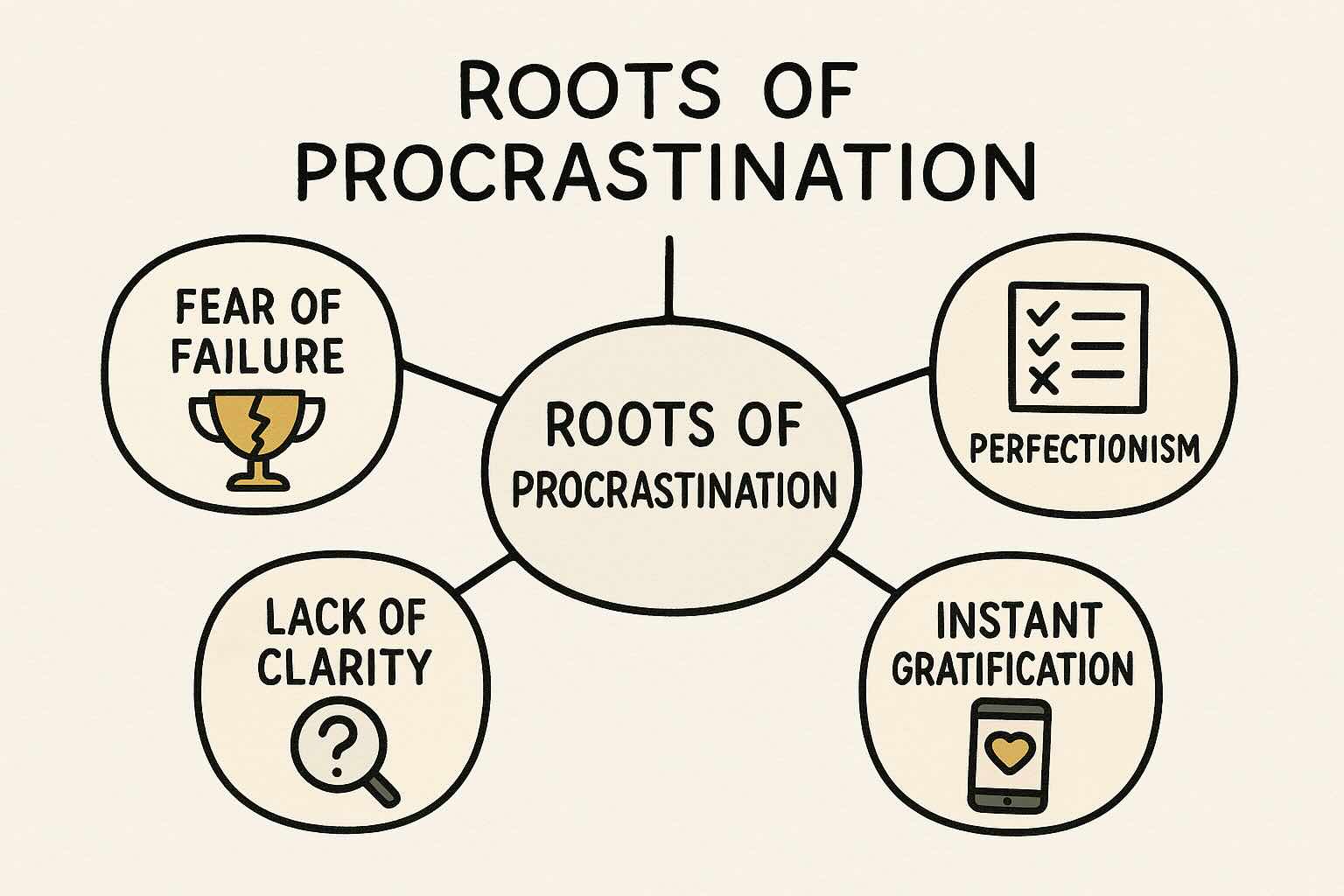
- Stress & Anxiety: The longer you wait, the more anxious you become as deadlines loom.
- Lower Quality Work: Last-minute scrambles often lead to mistakes or rushed outcomes.
- Missed Opportunities: You might pass on chances for growth, success, or even fun experiences.
- Eroded Self-Confidence: Chronic procrastination can make you doubt your own capabilities.
3. Embracing the “Small Wins” Strategy
A powerful way to overcome procrastination is focusing on small daily wins. Instead of aiming for huge leaps, break tasks into bite-sized steps that are easy to start and finish.
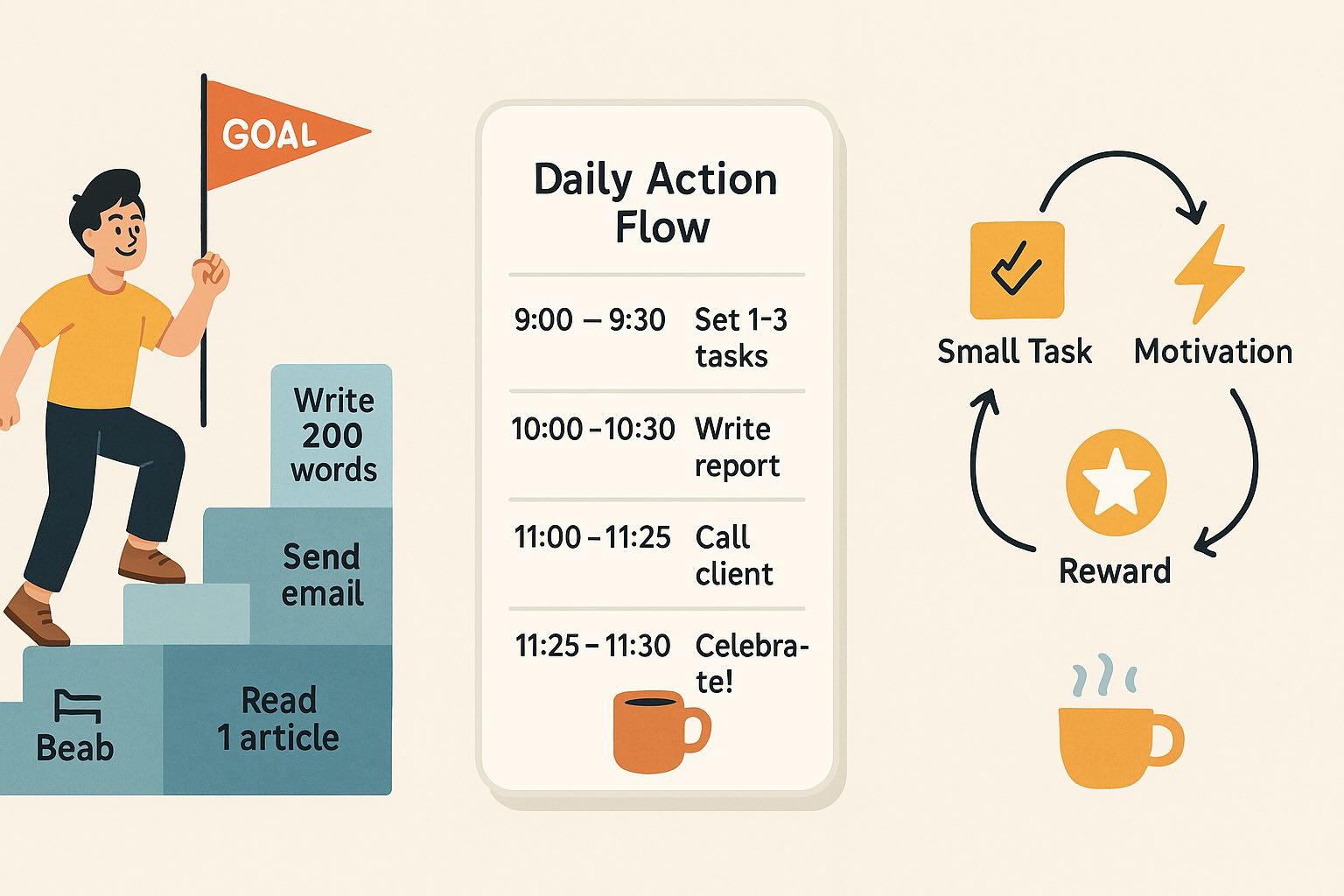
3.1 How It Works
-
Set 1–3 Important Tasks per Day
- Instead of overwhelming yourself with a massive to-do list, pick the few tasks that truly matter.
- These tasks should be specific—e.g., “Write 500 words for the report,” not just “work on the report.”
-
Use Time Blocks
- Allocate a fixed chunk of time for each task (e.g., 25 minutes, following the Pomodoro Technique).
- This gives you a deadline and can spur you to focus.
-
Celebrate Completion
- After finishing a small task, give yourself a brief mental pat on the back.
- This positive reinforcement makes you more likely to tackle the next one.
-
Track Progress
- Jot down each mini-goal you finish. Seeing your accomplishments stack up is motivating.
3.2 Why Small Wins Work
- Reduces Overwhelm: Large projects feel more doable when you break them into tiny steps.
- Builds Momentum: Completing even a small task can spark motivation to keep going.
- Immediate Feedback Loop: You’ll see results or progress quickly, which helps battle the need for instant gratification.
4. Practical Tips to Beat Procrastination
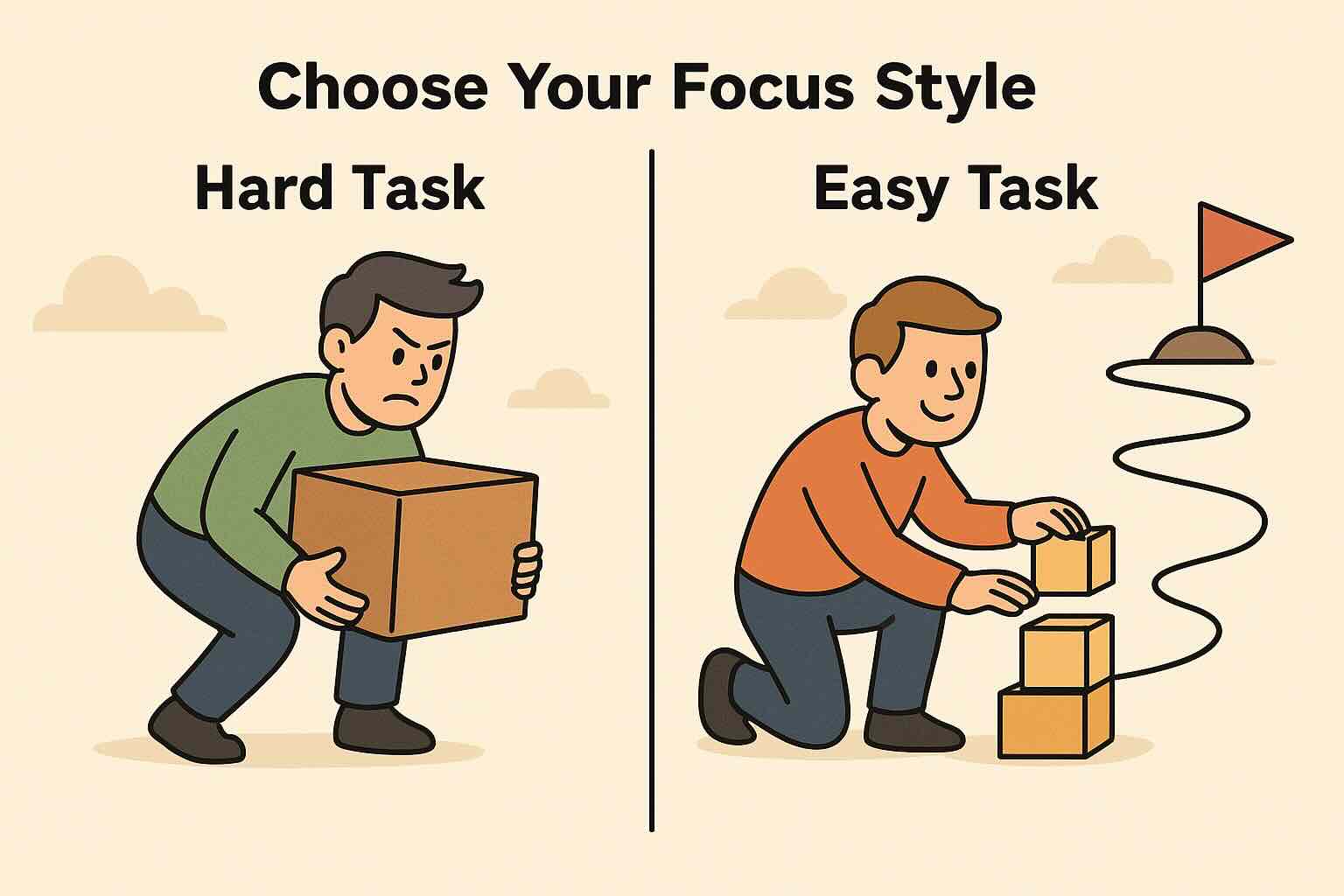
4.1 Start with the Hardest Task (or Easiest—Pick Your Style)
- Some people do better tackling the toughest task first, getting it out of the way and riding that momentum.
- Others find success easing into the day with a simpler task, building confidence before attacking something bigger.
- Experiment to see which approach suits you best.
4.2 Create a Time-Specific Plan
- Instead of saying, “I’ll write my paper today,” try “I’ll write my paper from 10am to 11am.”
- Putting tasks on your calendar helps you commit and see exactly when you’ll work on them.
4.3 Eliminate Distractions
- Turn off notifications or put your phone in another room during work blocks.
- Consider apps or browser extensions that block social media or certain websites for a set period.
4.4 Give Yourself Micro-Rewards
- Promise yourself a small treat—like a cup of coffee or 10 minutes of YouTube—after completing a focused work session.
- The key is to earn the reward by finishing your task, rather than indulging as a form of procrastination.
4.5 Embrace Imperfection
- Procrastination often masks a fear of not doing something perfectly.
- Give yourself permission to produce a “first draft” or a “rough version.” You can always refine and improve later.
5. A Simple Example
Let’s say you’re dreading a 10-page research paper. Rather than waiting until the night before:
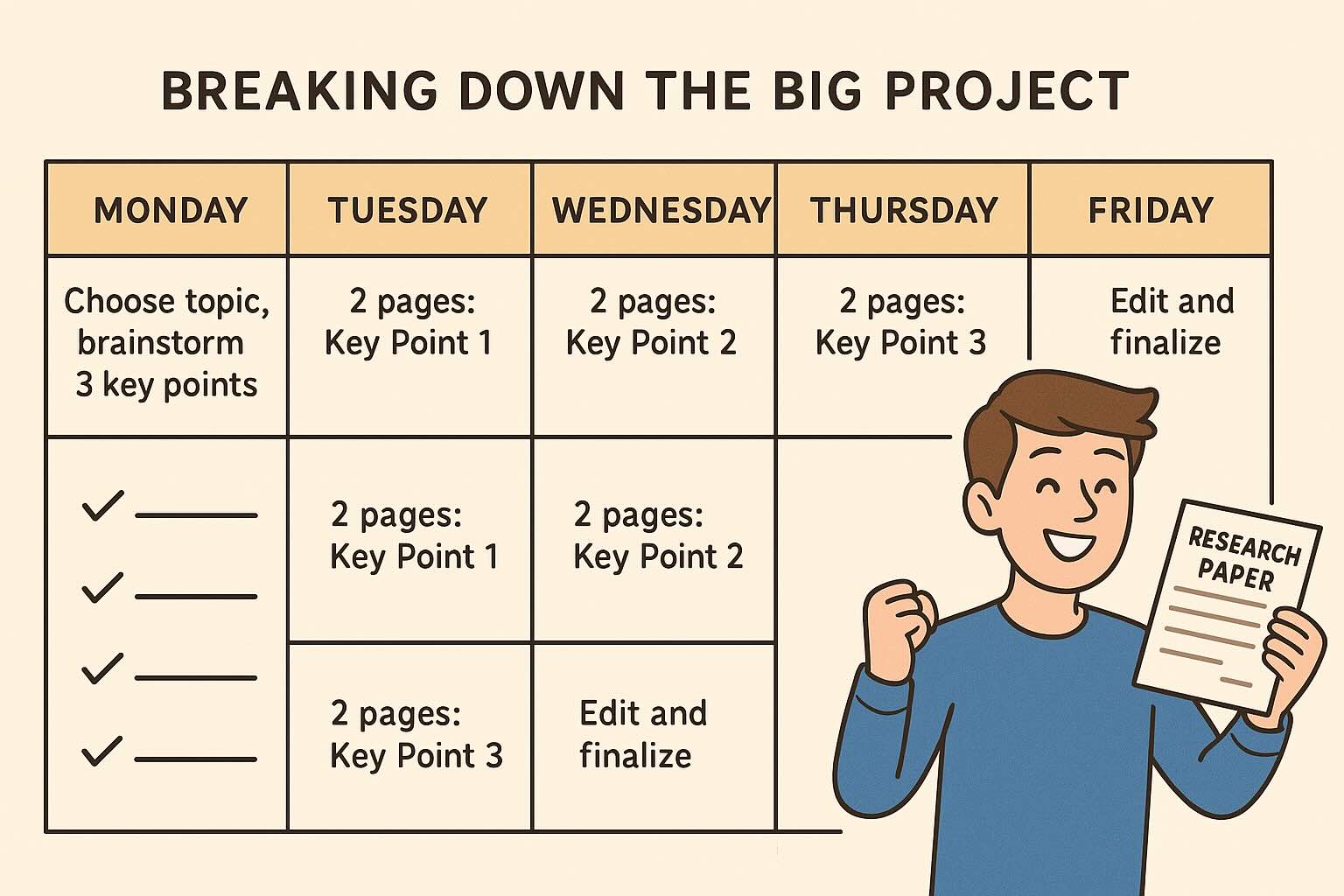
- Monday (10–10:30am): Choose a topic and brainstorm 3 key points to cover.
- Tuesday (10–11am): Write 2 pages on the first key point.
- Wednesday (10–11am): Write 2 pages on the second key point.
- Thursday (10–11am): Write 2 pages on the third key point.
- Friday (10–10:30am): Edit and finalize.
In just small daily blocks, you’re done by Friday—without an all-nighter or overwhelming stress.
6. Long-Term Strategies
- Reflect Weekly: Each weekend, ask yourself: Did I procrastinate last week? On what tasks? Why? Then plan solutions.
- Track Wins: Keep a simple journal listing daily accomplishments. Over time, seeing how much you’ve done boosts confidence.
- Accountability: Team up with a friend or colleague. Check in daily or weekly to report progress. External accountability can be a huge motivator.
Conclusion
Procrastination isn’t a character flaw—it’s a challenge we all face at times. The good news is that small steps can lead to big progress. By targeting just a few essential tasks each day, blocking out distraction-free time, and rewarding yourself for taking action, you’ll gradually chip away at even the most daunting projects.
Remember, the solution isn’t about suddenly finding mountains of willpower. It’s about adjusting your approach to work in small, consistent bursts. Start small today—pick one task and just spend 15 minutes on it. That small win can be the spark that ends your procrastination cycle for good.